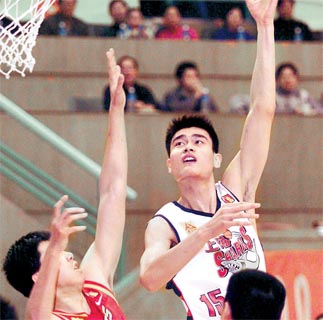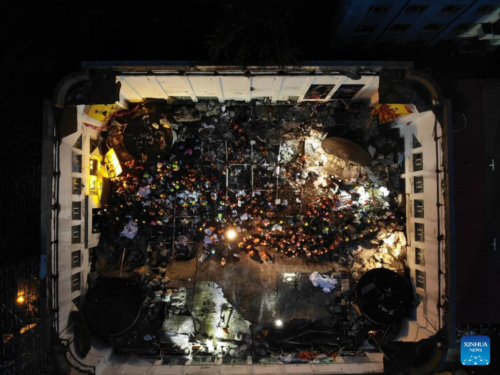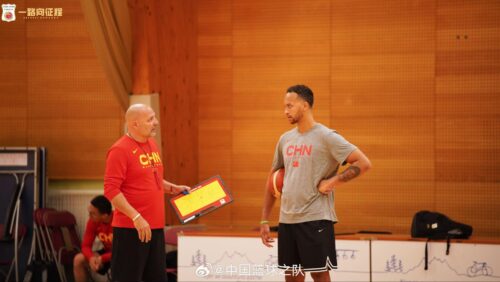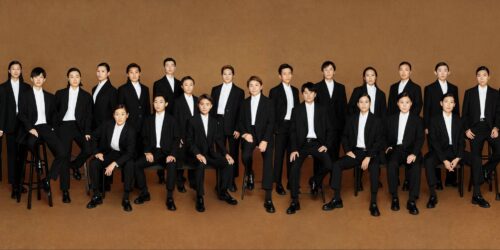China crashes out of World Cup; Stephon Marbury to coach in CBA
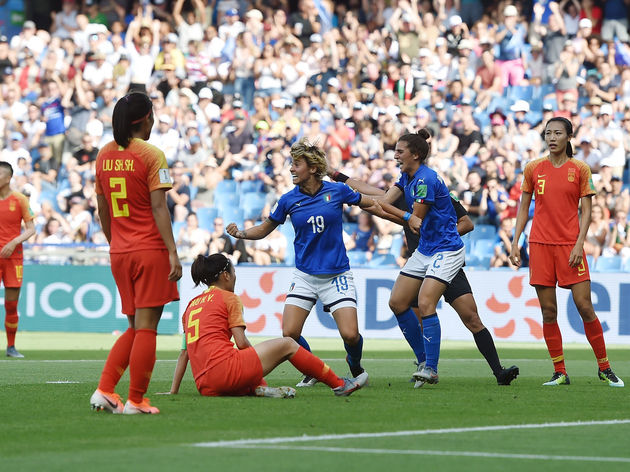

The China Sports Column is a The China Project weekly feature in which China Sports Insider Mark Dreyer looks at the week that was in the China sports world.
The Chinese dream, such as it was, is over.
The Chinese national team is out of the Women’s World Cup after a 2-0 defeat against Italy in the Round of 16, marking the team’s worst performance in seven World Cup appearances.
And while their final game was an improved performance on the pitch, with star player Wang Shuang finally coming to life and registering six attempts on goal after none in the previous three games, it doesn’t take a genius to see why China flew home earlier than they’d hoped:
Just one goal in four games — and that came against South Africa, the second-lowest ranked team in the tournament.
Coach Jia Xiuquan afterwards claimed, “We’ve done a good job.” But that’s not really true. Based on form and rankings, a matchup against Italy had provided the best possible chance for success in the knockout rounds, but once again China came up short.
The team has now failed to score a goal in five of its last six World Cup knockout stage matches, and the steady decline over the past two decades from the high of the 1999 World Cup final shows no sign of arresting.
Most worrying is the fact that Wang Shuang has terminated her contract with club side Paris Saint-Germain and will return to play in the far weaker Chinese league this year.
That may ever so slightly help her Chinese teammates — with the misguided hope being that the national team squad can become a more fluid outfit by next summer’s Tokyo Olympics — but it’s hard to see how this will be anything other than detrimental to the 24-year-old’s career.
Having spent two years overcoming many of the obstacles associated with moving to a new continent and settling into a foreign league, those hard yards have been wasted.
Stranger things have happened in football, but don’t expect China to be challenging for a medal in Japan.
~
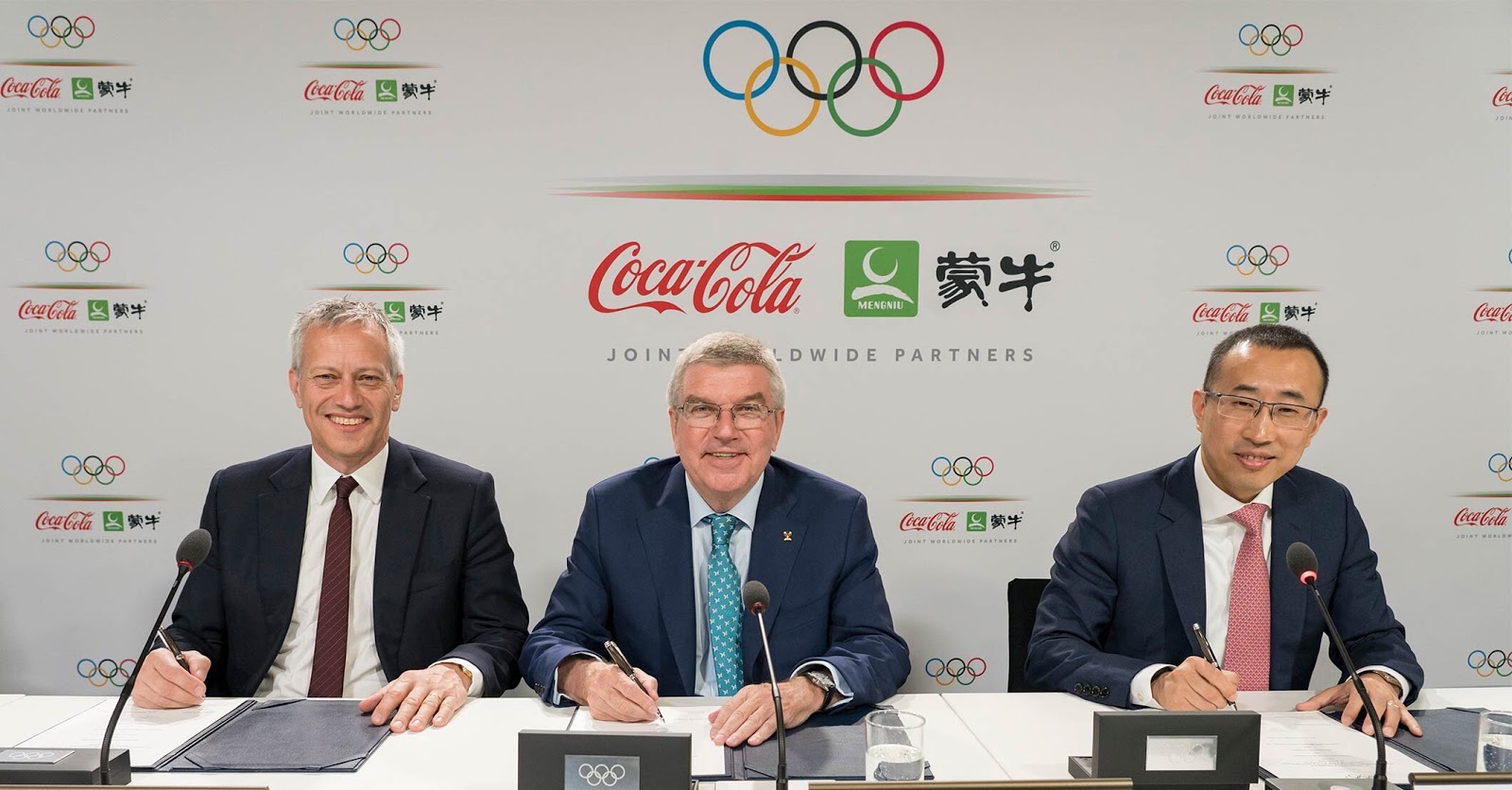
Moving seamlessly from the tears of China’s World Cup exit to the crying over spilt milk between industry giants Yili and Mengniu.
Last week’s column detailed the beginnings of a spat between the pair, with 2022 Olympic sponsor Yili accusing Mengniu of encroaching into its territory due to an expected partnership with long-term Olympic sponsor Coca-Cola.
That deal — reported to be worth $3 billion — was confirmed this week by the International Olympic Committee and runs through to 2032.
According to the official release, the deal “combines the non-alcoholic beverage and the dairy categories into a new joint category,” which apparently has yet to be named.
There’s plenty of corporate guff in the statement, such as this nonsense from IOC President Thomas Bach:
“Having our longest-standing partner, Coca-Cola, an iconic American brand, together with a young Chinese company, Mengniu, joining hands under the roof of our Worldwide TOP Program is a great example of the unifying power of the Olympic spirit.”
Replace Bach’s last eight words with “that we’ll do anything for money” and you get a somewhat more accurate picture of what is going on here.
Then, buried in the 12th paragraph is this:
“Olympic marketing programs are based on the fundamental principle of exclusivity within a specific product category and territory. The current Beijing 2022 domestic partner’s exclusive rights in its designated category in the Chinese market will not be affected.”
That’s a half-hearted effort to address Yili’s preemptive concerns, but here’s the thing: it’s bullshit.
Yili is the “Official Dairy Products Partner” for Beijing 2022. Mengniu’s actual name in full is “China Mengniu Dairy,” and while Mengniu may technically make or distribute non-dairy products, there’s just no way it can stay away from the dairy sector in 2022.
Mengniu was also a sponsor of the 2018 FIFA World Cup, during which it was the official drinkable yoghurt, pre-packaged ice cream, milk and powdered milk for the tournament in the Greater China region.
Sounds a lot like dairy, doesn’t it?
But apparently the IOC thinks that if it cleverly combines dairy and booze-less drinks, it can circumvent its own exclusivity rules.
Come to think of it, both sides would probably be a lot happier if they ditched the alcohol-free selection and went straight for the hard stuff.
Beer appears to be the only category where multiple sponsors can co-exist happily.
Budweiser, Tsingtao, and Yanjing all signed on for the 2008 Beijing Olympics, with both local brands re-upping for the 2022 edition.
Back in the dairy world, though, that’s clearly not the case, and it’s hard to escape the conclusion that the IOC simply doesn’t care because Mengniu is paying them a lot more money.
As they say in the IOC’s official language, plus ça change.
~
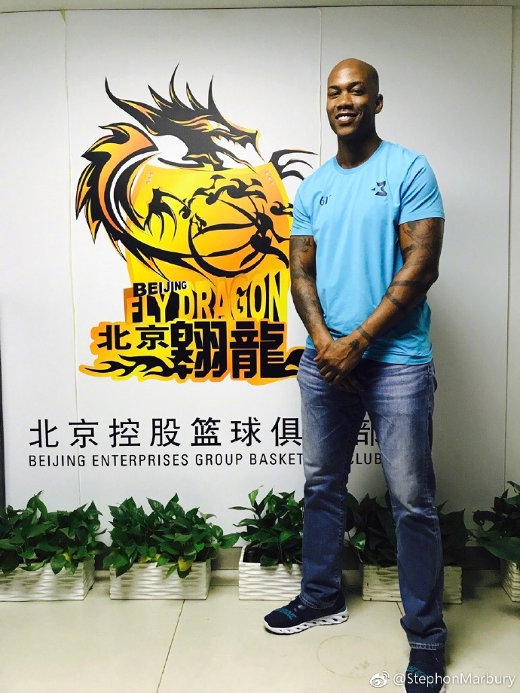
Stephon Marbury’s China adventure is continuing in the coaching ranks, with news this week that he will lead the team with whom he ended his CBA career, the Beijing Fly Dragons.
Marbury has reportedly signed a three-year deal with the team — now known as the Beijing Royal Fighters — though he’d already made the capital his second home in his retirement.
He’d long been an unofficial mentor to younger teammates during his playing days, and has filled much of his post-playing career running youth coaching clinics. In his return to the CBA though, he will have his work cut out for him, with a team that finished dead last with an 8-38 record last season.
Marbury has previously spoken about wanting to be involved with the Chinese national team, and while he’s still waiting for that call from Yao, a solid performance in his first proper coaching job could put him in the national team frame further down the line.
Speaking of Yao, Sports Illustrated profiled the big man in their “Where Are They Now?” series — yearning for an invisibility cloak, apparently.
"Remember that cape Harry Potter had?" he asks. "Invisible? I want one of those."
One of several great lines in this long piece on Yao Ming by @alex_prewitt https://t.co/UES2KAV1yc
— Mark Dreyer (@DreyerChina) June 28, 2019
There are plenty of revealing moments in this long piece, but perhaps none more than this, which sums up the current state of Chinese basketball:
“I’m tired of being known,” he says. “If 10 years from now we still use Yao Ming to represent China, it’s a failure on my job. We need a new star to rise up.”
Now Marbury has joined the small band of coaches tasked with turning Yao’s vision into reality.
The China Sports Column runs every week on The China Project. Follow Mark Dreyer @DreyerChina.
